Another Court Says Challenge to CBS Can Proceed
Harris Hits Trump Over ‘Intent to Jail Journalists’:
Questions for V.P. Should Include Her Stance Toward Media
How ‘War Is Hell’ Is Playing Out in Africa
‘Survival Required Luck’ in Traversing Darién Gap
New York’s WCBS Newsradio Signs Off After 57 Years
Emmys Reject Call to Pull Palestinian’s Nomination
Short Takes: Clarence Page; Black crossword puzzle; Justice Department’s Civil Rights Division since Ferguson; payouts to Chicago police over misconduct charges; Black workers’ lawsuit against Elon Musk’s Tesla; layoffs at Time magazine; Time’s Ethiopian-born “Kid of the Year”; Report for America adding 50 newsroom positions; Byron Allen’s financial issues; Katie Couric on CBS plan for all-male anchor team;
Knight Foundation investing $5.4 million in outlets; Baltimore Sun Guild pickets; new Star Tribune columnists; effects of WWII Japanese-American incarceration; America’s first Hmong anchorman; Vladimir Duthiers; short films by Native Americans; Maria Ressa; press abuses in Nigeria, Uganda, Kenya, Afghanistan, Myanmar, Bangladesh, Morocco, Zambia, Burkina Faso, Guinea-Bissau; press freedom in Angola!
Homepage image: Corporate diversity, equity and inclusion efforts are under pressure as the threat of lawsuits rises and political tension roils around them. Some companies are shifting their approaches, but others are walking away. (Washington Post illustration; iStock)
Support Journal-ismsWhat exactly is diversity, equity, and inclusion? And why the push to ban it on college campuses? In this video, the Chronicle of Higher Education explores the history of DEI and how it came under political attack. (Credit: YouTube)
Another Court Says Challenge to CBS Can Proceed
“A federal judge in Virginia has tossed out a proposed class action accusing newspaper publisher Gannett of adopting diversity policies that had led to widespread discrimination against white employees,” Daniel Wiessner reported Wednesday for Reuters.
“U.S. District Judge Rossie Alston in Alexandria, Virginia, on Tuesday said the 2023 lawsuit was ‘vague and conclusory’ and that the five named plaintiffs had failed to identify a company-wide policy that impacted them due to their race. But the judge gave the plaintiffs 30 days to amend their lawsuit and flesh out their claims. . . .”
 While Gannett scored a welcome victory — even if only temporary — against the movement against diversity, equity and inclusion in media, U.S. District Judge John Walter in California ruled that an anti-DEI lawsuit against CBS Studios can proceed. A script coordinator for “SEAL Team” has “accused CBS Studios of carrying out illegal diversity quotas that discriminate against straight white men,” Winston Cho reported Aug. 15 for the Hollywood Reporter.
While Gannett scored a welcome victory — even if only temporary — against the movement against diversity, equity and inclusion in media, U.S. District Judge John Walter in California ruled that an anti-DEI lawsuit against CBS Studios can proceed. A script coordinator for “SEAL Team” has “accused CBS Studios of carrying out illegal diversity quotas that discriminate against straight white men,” Winston Cho reported Aug. 15 for the Hollywood Reporter.
 Meanwhile, on Wednesday, MIT announced that its incoming freshman class “will be far less racially diverse compared to past years, a change the university attributes to last year’s U.S. Supreme Court decision banning the use of race in college admissions,” as Suevon Lee reported for WBUR in Boston. (Video from MIT student Nesu Nhamo)
Meanwhile, on Wednesday, MIT announced that its incoming freshman class “will be far less racially diverse compared to past years, a change the university attributes to last year’s U.S. Supreme Court decision banning the use of race in college admissions,” as Suevon Lee reported for WBUR in Boston. (Video from MIT student Nesu Nhamo)
Further, The Washington Post reported Monday, “In an era of tightening budgets, many tech companies are distancing themselves from these [DEI] initiatives — forcing [Silicon Valley] advocacy groups to close up shop, lay off staff or rebrand their efforts to stay afloat, according to interviews with more than a dozen diversity advocates and group founders.
“The drop in support for programs that tech companies once touted as a sign of their commitment to adding women, Black people and Hispanic people to their ranks follows a right-wing campaign to challenge diversity initiatives in court,” wrote Naomi Nix, Cat Zakrzewski and Nitasha Tiku.
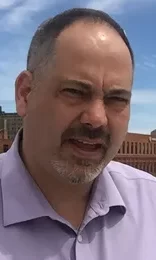 In the Gannett case, “The named plaintiffs say they were fired, pushed to quit, or passed over for promotions to make room for women or minorities, or paid less than non-white colleagues. And they claim those decisions were driven by a policy Gannett announced in 2020 saying the company aimed to have its newsrooms reflect the demographics of the communities they cover by 2025,” Wiessner continued for Reuters. The case was originated in April 2023 by Steven Bradley (pictured) (scroll down), a white male journalist formerly at Gannett’s Rochester, N.Y., Democrat and Chronicle. Gannett is the nation’s largest newspaper company.
In the Gannett case, “The named plaintiffs say they were fired, pushed to quit, or passed over for promotions to make room for women or minorities, or paid less than non-white colleagues. And they claim those decisions were driven by a policy Gannett announced in 2020 saying the company aimed to have its newsrooms reflect the demographics of the communities they cover by 2025,” Wiessner continued for Reuters. The case was originated in April 2023 by Steven Bradley (pictured) (scroll down), a white male journalist formerly at Gannett’s Rochester, N.Y., Democrat and Chronicle. Gannett is the nation’s largest newspaper company.
“Gannett has maintained that the alleged ‘policy’ was merely a report stating aspirational goals, and denied engaging in race discrimination in order to meet them. Alston on Tuesday largely agreed, saying the report did not include specific quotas or provide concrete plans to achieve diversity targets,” Wiessner continued.
“Alston, an appointee of Republican former President Donald Trump, also said the lawsuit was not grounded in a common legal theory that could form the basis of a nationwide class action, since each named plaintiff claims they were affected by Gannett’s policies in different ways.
“The Plaintiffs would all be seeking relief based on different theories of recovery, based on different positions at different newspapers in different areas of the country with different decision-makers,” he wrote.
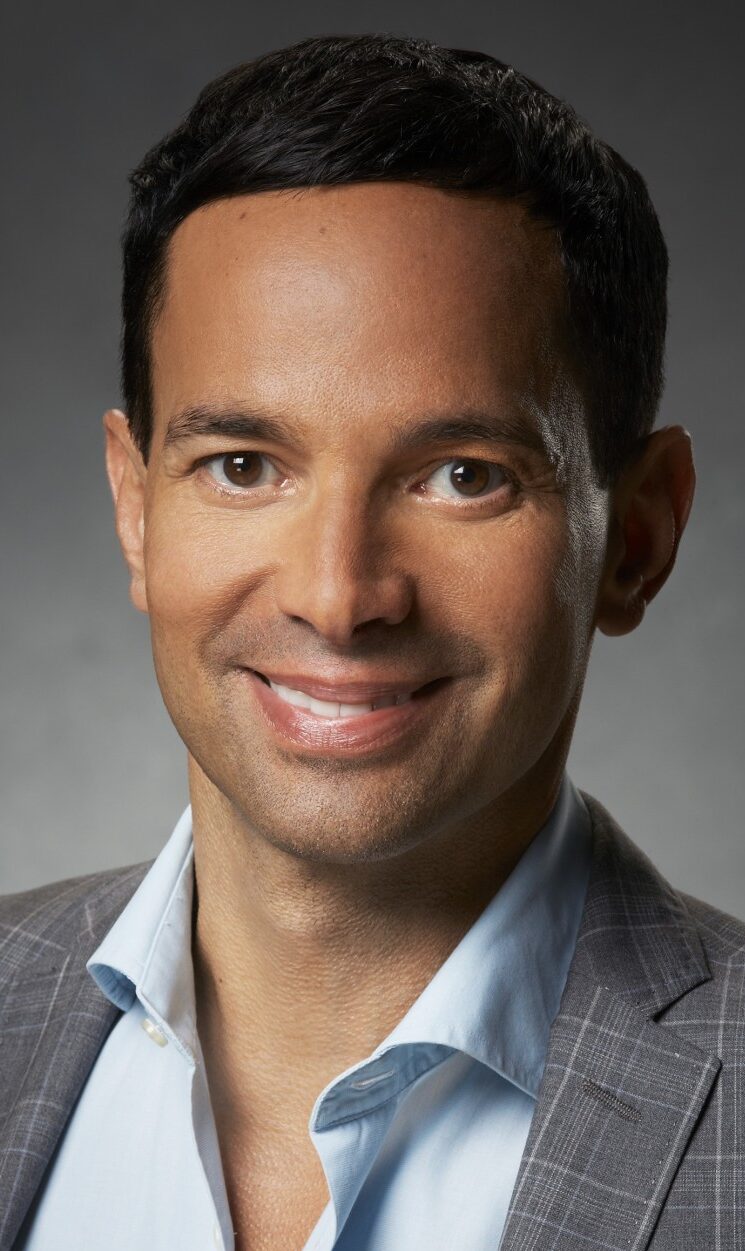 The CBS complaint cites a 2022 Entertainment Weekly story in asserting that the CEO of CBS Entertainment Group, George Cheeks (pictured), described by EW as “CBS’ first Black, biracial, and gay president,” ‘set a goal that all writers’ rooms on the network’s primetime series be staffed 40 percent Black, Indigenous and People of Color (‘BIPOC’) in the 2021-22 season; 17 out of 21 shows hit or exceeded that target.’ “
The CBS complaint cites a 2022 Entertainment Weekly story in asserting that the CEO of CBS Entertainment Group, George Cheeks (pictured), described by EW as “CBS’ first Black, biracial, and gay president,” ‘set a goal that all writers’ rooms on the network’s primetime series be staffed 40 percent Black, Indigenous and People of Color (‘BIPOC’) in the 2021-22 season; 17 out of 21 shows hit or exceeded that target.’ “
CBS did not respond to requests for comment.
At the recent convention of the National Association of Black Journalists, Rodney Brooks, who chairs NABJ’s Finance Committee, reported to the NABJ board of directors that there will be further DEI setbacks (scroll down) that could affect NABJ’s bottom line if Trump is elected in November. Brooks named two companies that ended their diversity programs because of the current climate, although they are not funders of NABJ.
The journalists of color associations were founded with diversity in media as their mission, yet they have not aggressively challenged the anti-DEI movement.
When news of the lawsuit against Gannett escalated last November, NABJ President Ken Lemon messaged, “No comment yet. We are aware of the situation and are closely monitoring it.”
- Naomi DuBovis, Reynolds Center for Business Journalism: Diversity in newsrooms: reflections from business journalism professionals
- Jeff Green, Bloomberg: Harley-Davidson Drops Diversity Efforts After Attacks by Anti-DEI Activist
- Haleluya Hadero and Wyatte Grantham-Philips, Associated Press: Lowe’s changes some DEI policies amid legal attacks on diversity programs and activist pressure (Aug. 27)
- Eric Kiefer, Patch: Study Probes Diversity In NJ Newsrooms: Race, Gender, Pay, Turnover
- Jim Sleeper, Salon: Kamala Harris practices the post-racial politics we’ve been waiting for: Harris/Walz may rescue diversity from shallow “Diversity, Equity, and Inclusion” protocols
- Isaiah Thompson, Nonprofit Quarterly: Demand for DEI Exceeds Action, Report Finds (Aug. 8)
Harris Hits Trump Over ‘Intent to Jail Journalists’
Questions for V.P. Should Include Her Stance Toward Media
The topic of Democratic presidential nominee Kamala Harris‘ dealings with the press these days most often is about the positive coverage she’s been getting lately, or whether she should be talking more with the news media.
But a brief mention in the vice president’s history-making acceptance speech at the Democratic National Convention Thursday raised another issue.
In lambasting Republican presidential nominee Donald Trump, Harris said, “consider what he intends to do if we give him power again.
“Consider his explicit intent to set free the violent extremists who assaulted those law enforcement officers at the Capitol.
“His explicit intent to jail journalists. Political opponents. Anyone he sees as the enemy.”
The reference to journalists pushed the right button for Bruce Brown, executive director of the Reporters Committee for Freedom of the Press. Brown messaged Journal-isms, “No president gets to jail journalists. Government threats to punish or imprison reporters are wholly unacceptable and must be taken seriously, particularly threats that appear politically-motivated.
“And we do have growing concerns, regardless of who wins the upcoming election, as courts around the country have been increasingly issuing once-unthinkable anti-press rulings.”
Trump’s antipathy toward the press has been well documented. In 2017, while Trump was in office, Chris Cillizza wrote for CNN:
“Before President Donald Trump reportedly asked [then-FBI Director James] Comey to end the investigation into deposed national security adviser Michael Flynn’s ties to Russia, he also reportedly made a remarkable suggestion about journalists.
“Wrote the New York Times’ Michael Schmidt of that exchange:
” ‘Alone in the Oval Office, Mr. Trump began the discussion by condemning leaks to the news media, saying that] Comey should consider putting reporters in prison for publishing classified information, according to one of Mr. Comey’s associates.’
“Um, what?
“Understandably, the bulk of the coverage in the wake of Schmidt’s bombshell has focused on what it means for Trump if he did indeed ask Comey to stop an ongoing investigation. (White House press secretary Sean Spicer said Wednesday afternoon of the reported meeting: ‘The President’s been very clear. This is not an accurate representation of that meeting.’)
“But, the suggestion from a sitting President of the United States to the FBI Director that journalists be jailed for reporting on classified information is, in and of itself, a stunning statement that goes beyond even Trump’s most virulent anti-media statements to date.
“Throughout the 2016 campaign and even in the White House, Trump has been outspoken about his distaste for the media. He would regularly refer to the journalists covering the campaign as ‘some of the most dishonest people’ he had ever met and insist that the press was deeply biased against him. . . .”
Vice President Harris underscored respect for human rights and press freedom in a 2022 meeting with Philippines President Ferdinand Marcos Jr. (Credit: Rappler/YouTube)
Leonard Downie Jr., a former executive editor of The Washington Post, outlined more concerns this past May under the headline, “A second Trump presidency would be a disaster for the news media.“
Let’s not forget, though, that former president Barack Obama, with whom Harris is being favorably compared, was criticized by press freedom groups as well. The Committee to Protect Journalists said it “and civil rights groups have documented how. . . . his administration aggressively prosecuted leakers, surveilled journalists in leak investigations, used the state secrets privilege to suppress evidence in courts about torture and the government’s no fly list, and set a record for the use of legal exceptions in responding to freedom of information act requests.”
Harris told Fox News’ Peter Doocey, “I’m working toward it!” Friday in a fun-spirited manner when he asked,” “Are you ready for your Fox Interview?” Still, others point out that she’s doing just fine with voters without such engagements.
Meanwhile, Michael M. Grynbaum reported for The New York Times that “The four-day celebration in Chicago of Vice President Kamala Harris was watched on TV by an average of 21.8 million viewers across four nights, Nielsen said on Friday. That was 14 percent more than the Republicans’ jamboree last month in Milwaukee, a four-day tribute to former President Donald J. Trump.”
Although the gap narrowed to only a 3-percent difference in the ratings for each candidate’s final night, the net effect, Dan Balz reported for The Washington Post, was a net minus for Trump.
“In his history as a candidate for president, Donald Trump has never experienced anything like the past month,” Balz wrote. “Vice President Kamala Harris, a Black and Indian American woman, has pushed the White alpha male to the sidelines of the national conversation, denying him the spotlight he craves and constantly demands.
“Democrats concluded their electrifying national convention here on Thursday night with Harris as the main event, delivering an address sculpted to keep her on the crest of a wave that has changed the contours of the presidential election.
“The Democrats are in the game, the former president is in a box, and it’s not clear whether he knows what to do. . . .”
The final convention night also marked a return to live news event coverage for BET, which staged “BET News Presents: Black America Votes the 2024 DNC,” hosted by Ed Gordon and joined by Jemele Hill and Van Lathan.
But BET coverage was marred by cutaways from the convention action, such as having CBS News reporter Skyler Henry give a recap of events while actress Kerry Washington was opening the convention night with an engaging presentation that featured two of Harris’ young grand-nieces teaching the audience how to correctly pronounce “Kamala.” Panelists talked over a remarkable no-holds-barred speech by former Republican Rep. Adam Kinzinger of Illinois, a member of the House Jan. 6 Committee, and BET pre-empted Sen. Mark Kelly, D-Ariz., a vice presidential finalist, for a commercial.
The Grio TV, which simulcast the fateful June 27 debate between Trump and President Biden, this time was showing “Cosby” reruns.
- Nicole Acevedo, NBC Latino: Harris campaign launches WhatsApp channel aimed at bilingual Latino voters
- Nicole Acevedo, NBC Latino: Puerto Rico delegates at odds over DNC platform despite unanimous support for Harris
- Zeeshan Aleem, MSNBC: AOC once electrified the left. Now she electrifies the party establishment.
- Zeeshan Aleem, MSNBC: RFK Jr.’s journey from Democrat to Republican shows how Covid scrambled politics
- Jenice Armstrong, Philadelphia Inquirer: I’ll admit it — as a Black woman, I shed a tear or two watching Kamala Harris at the DNC
- Axios: Singer Isaac Hayes’ family sues Trump for “Hold On, I’m Coming” use (Aug. 17)
- Perry Bacon Jr., Washington Post: Harris should talk to journalists more. Particularly the wonky ones.
- Charles M. Blow, New York Times: Liberals Needed a Beyoncé Moment. Kamala Harris Is Delivering One.
- Hayes Brown, MSNBC: Donald Trump knew exactly what he was doing in Michigan
- Will Bunch, Philadelphia Inquirer: In Chicago, Dems redefined what it means to be American, then claimed it
- Christina Carrega, Capital B: Exonerated ‘Central Park Five’ Members Remind America About Who Donald Trump Has Always Been
- Calvin Davis, Capital B: Beyond The Main Stage: From Church Pews to Museum Halls, Black Spaces and Culture Shine at the DNC
- Jarvis DeBerry, MSNBC: Democrats party in Chicago, the city Republicans most love to hate
- Pauly Denetclaw, ICT News: Past, present Indigenous elected leaders endorse Kamala Harris
- Editorial, Philadelphia Inquirer: After the DNC, the contrast between Harris and Trump couldn’t be any clearer
- Zachary Folk, Daily Beast: Bitter Trump Posts Up a Storm as Harris Makes Her Big DNC Speech
- Renee Graham, Boston Globe: Doug Emhoff is Kamala Harris’s secret weapon
- LZ Granderson, Los Angeles Times: Harris changed this election. This election changes America
- LZ Granderson, Los Angeles Times: ‘We love Joe’ at Democratic convention really means ‘We love American values’
- Shaun Griswold, Source New Mexico/ICT News: Native views at the Democratic National Convention
- Emil Guillermo, Asian American Legal Defense and Education Fund: The Everyman Moment for the Man from Mankato
- Krystal Hur and Matt Egan, CNN: How Kamala Harris is winning over Wall Street
- David Maraniss, Washington Post: Jesse Jackson, slowed at 82, is still showing up and keeping hope alive
- Candace McDuffie, The Root: The Best And Blackest Moments From The Democratic National Convention
- Keith Murphy, Andscape: Kamala Harris gets her hip-hop close-up
- Reporters Without Borders: RSF urges both presidential campaigns to commit to strengthening press freedom (Aug. 16)
- Reporters Without Borders: RSF condemns arrests of journalists covering DNC protest, calls for charges to be dropped
- Eugene Robinson, Washington Post: Harris plants her flag in Chicago: The future is now
- Sabrina Rodriguez and Ashley Parker, Washington Post: In Kamala Harris, Black women leaders see historic strides — and work ahead
- April Ryan, TheGrio: Black leaders and celebs are all in after Harris’ coronation at DNC
- Maria Quiñones Sánchez, Philadelphia Inquirer: I am cheering the Democratic National Convention, but not necessarily its platform on Puerto Rico
- Joel Simon, Vanity Fair: American Journalists Beware: A Second Trump Term Could Pose Very Real Risks (Aug. 26)
- Kanishka Singh, Reuters: Kamala Harris’ agenda: Gaza ceasefire, NATO support, middle class tax cut
- Erika D. Smith, Bloomberg: Harris Is Getting Black Women Their Overdue Political Capital
- Brent Staples, New York Times: The Black Identity in Kamala Harris’s Jamaican Roots
- Kimberly Atkins Stohr, Boston Globe: The Supreme Court is on the ballot, even if it’s not a DNC headliner
- Brandon Tensley, Aallyah Wright and Christina Carrega, Capital B: Shomari Figures and the Other Black Democrats Who Didn’t Hold Back in Chicago
- The 19th: Where Harris stands on eight key issues — from criminal justice to the economy and education
- Justin Tinsley, Andscape: The King’s co-sign: Why LeBron James’ presidential endorsement matters
- Helen Ubiñas, Philadelphia Inquirer: Kamala Harris has given us hope. Now we need to give her the White House.
- Sakshi Venkatraman, NBC Asian America: Meet the Asian American designers behind Michelle Obama’s and Ella Emhoff’s DNC looks
- Sakshi Venkatraman, NBC Asian America: Who is Shyamala Gopalan? Kamala Harris invokes her Indian mother in DNC speech
- WBEZ Chicago: Is press freedom at stake during the Democratic National Convention? | Yes, say advocates (video)
- Elizabeth Wellington, Philadelphia Inquirer: Kamala Harris’ DNC pantsuits backed up her promise that she will be a president for all Americans
- Randall Yip, AsAmNews: Harris leans on family during acceptance speech
“As many as 150,000 people might be dead, and millions are displaced, though the chaos has made an accurate count impossible. As the rebels eye the next city to ‘liberate,’ in their words, they seem more equipped for battle than for defending their people against a famine hurtling towards them.” (Credit: YouTube)
How ‘War Is Hell’ Is Playing Out in Africa
For The New York Times Magazine, Times correspondent Nicholas Casey and Moises Saman, photographer and videographer, embedded for two weeks with a Sudanese militia that says it’s fighting to establish a Western-style democracy.
The journalists’ cover story appeared in the Aug. 11 edition under the title, “The War The World Forgot.”
Casey wrote, “Sudan’s war has left nearly 11 million people displaced from their homes — more than the entire population of New York City, and currently the single largest population of internal refugees anywhere in the world.
“One U.S. State Department official estimated in May that as many as 150,000 people might be dead in the fighting, though the chaos has made an accurate body count impossible. Hospitals have ceased operating. Khartoum’s international airport is a ghost town, overrun by militiamen. Western Darfur, on the country’s frontier with Chad, stands besieged by paramilitary groups who have rekindled the ethnic cleansing that made Darfur a household name in the 2000s.
“And then there is the threat of starvation, the specter that haunts nearly all conflicts in Africa and makes no distinction between civilian and combatant. More than 15 million Sudanese faced crisis-level food insecurity even before the war began.
“Since then, the fighting has destroyed not just schools and roads but also farms and agricultural infrastructure, as the warring parties pillage the countryside to sustain themselves. The possibility of a great famine, like the one that ravaged Ethiopia in the 1980s, has become real again.
“Yet in a world already ravaged by entrenched wars and the threat of more, the tragedy of Sudan has hardly registered in many corners. Protesters do not march on capitals demanding a cease-fire. The United States has kept its distance. ‘For a Full Year, the Bodies Have Piled Up in Sudan — and Still the World Looks Away’ was the headline of a piece this April by Nesrine Malik, a columnist at the British newspaper The Guardian who writes about the country and was born there. . . . “
“Illegal border crossings into the United States from Mexico have dropped in the last few months. But further south, hundreds of thousands of migrants are making dangerous journeys through the Darién Gap, one of the world’s most treacherous jungles. “Seventy Miles in Hell” from The Atlantic documents migrant’s efforts through the region. Amna Nawaz discussed more with writer Caitlin Dickerson.” (Credit: “PBS News Hour/YouTube)
‘Survival Required Luck’ in Traversing Darién Gap
The Darién Gap, the land bridge in Panama between North and South America, “was thought for centuries to be all but impassable,” writes Caitlin Dickerson (pictured), winner of the 2023 Pulitzer Prize in explanatory reporting, describing the Trump administration policy that forcefully separated migrant children from their parents.
 “Explorers and would-be colonizers who entered tended to die of hunger or thirst, be attacked by animals, drown in fast-rising rivers, or simply get lost and never emerge, Dickerson continues in The Atlantic’s September issue. “Those dangers remain, but in recent years the jungle has become a superhighway for people hoping to reach the United States. According to the United Nations, more than 800,000 may cross the Darién Gap this year — a more than 50 percent increase over last year’s previously unimaginable number. Children under 5 are the fastest-growing group. . . .
“Explorers and would-be colonizers who entered tended to die of hunger or thirst, be attacked by animals, drown in fast-rising rivers, or simply get lost and never emerge, Dickerson continues in The Atlantic’s September issue. “Those dangers remain, but in recent years the jungle has become a superhighway for people hoping to reach the United States. According to the United Nations, more than 800,000 may cross the Darién Gap this year — a more than 50 percent increase over last year’s previously unimaginable number. Children under 5 are the fastest-growing group. . . .
“Everyone who works in the Darién Gap must be approved by the cartel and hand over a portion of their earnings. They have built stairs into hillsides and outfitted cliffs with ladders and camps with Wi‑Fi. They advertise it all on TikTok and YouTube, and anyone can book a journey online. There are many paths through. The most grueling route is the cheapest — right now, about $300 a person to cross the jungle on foot. Taking a boat up the coast can cost more than $1,000.
“I went to the Darién Gap in December with the photographer Lynsey Addario because I wanted to see for myself what people were willing to risk to get to the United States. Before making the journey, I spoke with a handful of journalists who had done so before. They had dealt with typhoid, rashes, emergency evacuations, and mysterious illnesses that lingered for months. One was tied up in the forest and robbed at gunpoint. They said that we could take measures to make the journey safer but that ultimately, survival required luck. . . .”
On X, the piece is drawing comments like these: “riveting and tragic — a textbook example of the power of on-the-ground reporting,” “Cried reading this. And then I read it again,” “An incredible piece of journalism and truly harrowing read. Take some time to dig into this story.” “A breathtaking achievement by @itscaitlinhd and @lynseyaddario. It’s not just an urgent story of human suffering, but one that seems almost impossible in its reporting challenges. They scaled boulders and forded rivers to bring you this story. Read it.”
- Megan Ulu-Lani Boyanton, Denver Post: After making the journey from Colombia, some migrants “feel left out” of resources for Venezuelans in Denver
- Emilio Buitrago, Philadelphia: For Venezuelans in the U.S., the recent election was not just a political event but a pivotal moment (Aug. 14)
- Thomas Tracy, Daily News, New York and Nicholas Williams: NYC Parks Dept. worker indicted for hate crime slaying of Venezuelan migrant
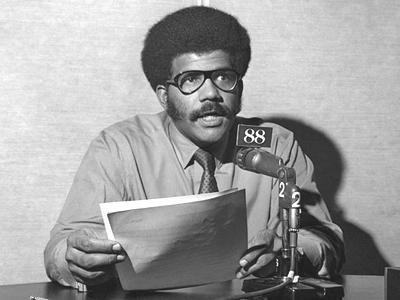
Ed Bradley, who worked at WCBS Newsradio from 1967 to 1971 (above), was best known as a correspondent for CBS’ “60 Minutes (pictured below). (Credit: Don Swaim)
New York’s WCBS Newsradio Signs Off After 57 Years
Starting Monday, WCBS, the all-news New York radio station that nurtured such talent as the late “60 Minutes” correspondent Ed Bradley, will be no more.
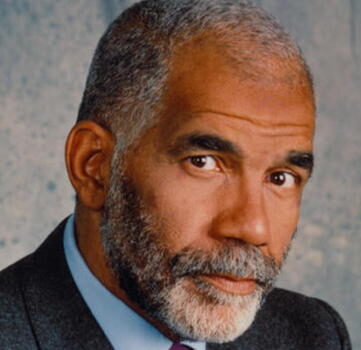 “There was a reunion on the radio Thursday, with familiar names and voices,” Tony Aiello reported for CBS, which owns WCBS.
“There was a reunion on the radio Thursday, with familiar names and voices,” Tony Aiello reported for CBS, which owns WCBS.
“Dozens of current and former staffers at WCBS 880 joined a special on-air tribute as the all-news radio station prepares to sign off.
“There were hugs on the street Thursday before they headed up to the studio for three hours of radio reminiscing.
“For 57 years, the team at WCBS 880 narrated the story of New York. . . .”‘
“The broadcasting company Audacy, which owns two all-news radio stations in New York City, WINS and WCBS . . . has announced that it is shutting down WCBS Newsradio 88,” Peter Katz reported Aug. 12 for WestfairOnline.
 “Audacy says it will continue to own the radio broadcasting frequency 880 on the AM dial but will lease the radio station to Good Karma Brands, which will begin broadcasting ESPN New York, sports programming, on the frequency. The FCC will be asked for permission to change the letters of the station from WCBS to WHSQ-AM.”
“Audacy says it will continue to own the radio broadcasting frequency 880 on the AM dial but will lease the radio station to Good Karma Brands, which will begin broadcasting ESPN New York, sports programming, on the frequency. The FCC will be asked for permission to change the letters of the station from WCBS to WHSQ-AM.”
In addition to Bradley, other journalists of color who have passed through the station are Steve Malavé, Vicki Allen, Steve Reed, Jim Asendio, Bill Daughtry, Kim Echols, Don Alexander, Jane Tillman-Irving, Darlene Rodriguez and Lyn Vaughn. (Hat tip: Sheila Stainback.)
“Local radio was once a pillar of the New York City news ecosystem. WCBS helped make up the running backdrop of frenetic city life,” Corey Kilgannon wrote for The New York Times. “Residents listened to it in the shower, at the breakfast table, in their cabs. It blended with the clamor of the delis and bodegas. It provided the small informational necessities that enable urban living — traffic and weather every 10 minutes on the 8s — and chronicled the epochal events that shaped New York.”
Bisan Atef Owda gained millions of followers on social media since Hamas attacks on Oct. 7 as she documented the destruction of “70 per cent of our infrastructure” in Gaza after Israeli military action. (Credit: YouTube)
Emmys Reject Call to Pull Palestinian’s Nomination
“The National Academy for Television and Arts and Sciences has responded to calls for a Palestinian journalist to have her Emmy nomination rescinded, after more than 150 celebrities and entertainment industry professionals penned a letter arguing against the nod,” Maira Butt reported Wednesday for Britain’s the Independent.
“Bisan Atef Owda, 25, was nominated in the category of Outstanding Hard News Feature Story for It’s Bisan from Gaza and I’m Still Alive. The documentary, created with AJ+, an imprint of Al Jazeera, which is also nominated, chronicles the journey of Owda as her family flee the bombardment of their home in Beit Hanoun in the Gaza strip.
“However, Creative Community for Peace, a Jewish non-profit organisation which describes its mission as ‘to educate about rising antisemitism within the entertainment industry, and to galvanise support against the cultural boycott of Israel’, alleged that Owda has ties with the Popular Front for the Liberation of Palestine (PFLP), a group which is a proscribed terrorist organisation in the US, Japan, and European Union.
“Over 150 people, including Will & Grace star Debra Messing, Cruel Intentions actor Selma Blair, former Paramount CEO Sherry Lansing, head of WME Rick Rosen, billionaire Haim Saban, and entertainment manager Michael Rotenberg signed a letter asking for the journalist’s nomination to be revoked. . . .
“However, NATAS CEO President Adam Sharp responded to the letter saying it had been ‘unable to corroborate these reports, nor has it been able, to date, to surface any evidence of more contemporary or active involvement by Owda with the PFLP organisation’. . . .”
- Committee to Protect Journalists: CPJ denounces Israel’s smearing of killed Palestinian journalists with unsubstantiated ‘terrorist’ labels (Aug. 14)
- Committee to Protect Journalists: CPJ concerned about safety of Al Jazeera Gaza reporter Anas Al Sharif after IDF comments (Aug. 12)
- Committee to Protect Journalists: Journalist casualties in the Israel-Gaza war
- International Federation of Journalists: Palestine: At least 125 journalists and media workers killed in Gaza
Short Takes
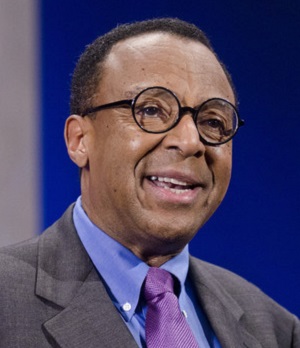 Clarence Page (pictured), syndicated columnist for the Chicago Tribune, is cutting back. “I don’t have to be dragged, kicking and screaming into retirement,” Page wrote Aug. 18. “A nice beer and bratwurst on the beach is good enough for me. But I’m not quitting journalism. I plan to cut my columns in half from two per week to one, and if all works out well enough, I’d like to explore some of these new media that my son has tried to explain to me. The gadget they call YouTube sounds interesting. As they used to say in the days of the old media, stay tuned.”
Clarence Page (pictured), syndicated columnist for the Chicago Tribune, is cutting back. “I don’t have to be dragged, kicking and screaming into retirement,” Page wrote Aug. 18. “A nice beer and bratwurst on the beach is good enough for me. But I’m not quitting journalism. I plan to cut my columns in half from two per week to one, and if all works out well enough, I’d like to explore some of these new media that my son has tried to explain to me. The gadget they call YouTube sounds interesting. As they used to say in the days of the old media, stay tuned.”
 “It started a couple of years ago when Juliana Pache was doing a crossword puzzle and got stuck,” Deepti Hajela reported Wednesday for the Associated Press. “She was unfamiliar with the reference that the clue made. It made her think about what a crossword puzzle would look like if the clues and answers included more of some subjects that she WAS familiar with, thanks to her own identity and interests — Black history and Black popular culture. . . . In January 2023, she created blackcrossword.com, a site that offers a free mini-crossword puzzle every day. And Tuesday marked the release of her first book, ‘Black Crossword: 100 Mini Puzzles Celebrating the African Diaspora.’ . . .”
“It started a couple of years ago when Juliana Pache was doing a crossword puzzle and got stuck,” Deepti Hajela reported Wednesday for the Associated Press. “She was unfamiliar with the reference that the clue made. It made her think about what a crossword puzzle would look like if the clues and answers included more of some subjects that she WAS familiar with, thanks to her own identity and interests — Black history and Black popular culture. . . . In January 2023, she created blackcrossword.com, a site that offers a free mini-crossword puzzle every day. And Tuesday marked the release of her first book, ‘Black Crossword: 100 Mini Puzzles Celebrating the African Diaspora.’ . . .”
- “Since April 2021, the Civil Rights Division says it’s launched 11 pattern-or-practice investigations into law enforcement agencies, including police departments in Minneapolis, Louisville and Phoenix. It’s currently enforcing consent decrees with 12 law enforcement agencies, including Ferguson police,” Eric Tucker and Alanna Durkin Richer reported Aug. 16 for the Associated Press. “This story is part of an ongoing series by The Associated Press exploring the impact, legacy and ripple effects of what is widely called the Ferguson uprising, sparked a decade ago by the fatal shooting” of Michael Brown, who was killed Aug. 9, 2014 in a violent altercation with officer Darren Wilson that began when Wilson ordered the 18-year-old, who was walking with a friend down the middle of a street, onto the sidewalk, the AP explains. Also: From Ferguson to Minneapolis, AP reporters recall flashpoints of the Black Lives Matter movement
- “Chicago taxpayers paid $164.3 million to resolve lawsuits that named 200 Chicago police officers whose alleged misconduct led more than once to payouts from 2019 to 2023, according to an analysis of city data by WTTW News,” Heather Cherone and Jared Rutecki reported for the station Aug. 12. “In all, the city spent $384.2 million to resolve lawsuits alleging approximately 1,300 Chicago police officers committed a wide range of misconduct — including false arrest and excessive force — during the five-year period that the Chicago Police Department was under a federal court order known as the consent decree to stop violating the civil rights of Chicagoans, according to WTTW News’ analysis. . . .”
 “A blockbuster class-action lawsuit against Tesla over treatment of Black workers at its Fremont electric car factory will go before a jury next fall, a judge ordered this week,” Ethan Baron wrote Aug. 16 for the Bay Area News Group. “It’s the largest of several lawsuits — including by the state and federal governments — claiming the automaker led by CEO Elon Musk (pictured) has allowed rampant, anti-Black racism at the plant, where Tesla models S, X, Y and 3 are made. . . . Nearly 6,000 current and former Black employees and contractors at the plant have signed onto the lawsuit, and the number could climb past 10,000 in coming months, a lawyer for the workers said.” Musk also owns X, formerly known as Twitter.
“A blockbuster class-action lawsuit against Tesla over treatment of Black workers at its Fremont electric car factory will go before a jury next fall, a judge ordered this week,” Ethan Baron wrote Aug. 16 for the Bay Area News Group. “It’s the largest of several lawsuits — including by the state and federal governments — claiming the automaker led by CEO Elon Musk (pictured) has allowed rampant, anti-Black racism at the plant, where Tesla models S, X, Y and 3 are made. . . . Nearly 6,000 current and former Black employees and contractors at the plant have signed onto the lawsuit, and the number could climb past 10,000 in coming months, a lawyer for the workers said.” Musk also owns X, formerly known as Twitter.
 “Time magazine is cutting 22 roles across departments, including editorial, technology, sales & marketing and Time Studios,” Caitlin Huston reported Tuesday for The Hollywood Reporter. Culture reporter Moises Mendez II (pictured) tweeted on X. “Welp. It’s official. Unfortunately, I was one of the people who was laid off from TIME today, my last day is Aug. 30. I will be available for work beginning Sept. 1, please send over job leads, freelance opportunities, and generally just good vibes.”
“Time magazine is cutting 22 roles across departments, including editorial, technology, sales & marketing and Time Studios,” Caitlin Huston reported Tuesday for The Hollywood Reporter. Culture reporter Moises Mendez II (pictured) tweeted on X. “Welp. It’s official. Unfortunately, I was one of the people who was laid off from TIME today, my last day is Aug. 30. I will be available for work beginning Sept. 1, please send over job leads, freelance opportunities, and generally just good vibes.”

- “Introducing our Kid of the Year, Heman Bekele: The fifteen-year-old invented a soap that could one day treat, and even prevent, some skin cancers,” Time magazine declared. Heman is an Ethiopia-born rising 10th-grader at Woodson High School in Fairfax County, Va.
- Report for America, a national service program that places talented journalists into local newsrooms to report on undercovered issues and communities, is looking to add more than 50 newsroom positions next summer. The application deadline is Sept. 13. Applications are now open for local newsrooms interested in partnering to host early-career and experienced journalists for up to three years, the organization announced. “While all local news organizations are encouraged to apply, Report for America looks to expand its reach into rural areas where news gaps are prominent, and newsrooms owned or led by journalists of color.”
 “Broadcast stations owned by Byron Allen (pictured) have been consistently late in making payments to network owners, angering media allies and creating distance between Allen and his would-be deal partners, CNBC has learned,” Lillian Rizzo and Alex Sherman wrote Aug 16 for CNBC. “The payments to ABC, CBS and NBC total tens of millions of dollars throughout the year, and the extent of the lateness has grown worse over time, according to people familiar with the matter.” In May, Allen‘s Allen Media Group confirmed that it was undergoing layoffs as part of strategic changes “to better position the company for growth.”
“Broadcast stations owned by Byron Allen (pictured) have been consistently late in making payments to network owners, angering media allies and creating distance between Allen and his would-be deal partners, CNBC has learned,” Lillian Rizzo and Alex Sherman wrote Aug 16 for CNBC. “The payments to ABC, CBS and NBC total tens of millions of dollars throughout the year, and the extent of the lateness has grown worse over time, according to people familiar with the matter.” In May, Allen‘s Allen Media Group confirmed that it was undergoing layoffs as part of strategic changes “to better position the company for growth.”
 It “was more than a little disappointing” to read that “CBS Evening News” anchor Norah O’Donnell “would be replaced by two men, John Dickerson and Maurice DuBois,” Katie Couric (pictured), former “Today” show co-anchor who once hosted “CBS Evening News” herself, wrote Aug. 11 in a New York Times op-ed. “Don’t get me wrong: I know, like and respect these two journalists. But soon, on the big three networks, there will be four male anchors. Yes, the talented Margaret Brennan will be contributing stories from the Washington bureau for CBS, but the two people who will be greeting Americans watching the CBS evening newscast will be men. . . .”
It “was more than a little disappointing” to read that “CBS Evening News” anchor Norah O’Donnell “would be replaced by two men, John Dickerson and Maurice DuBois,” Katie Couric (pictured), former “Today” show co-anchor who once hosted “CBS Evening News” herself, wrote Aug. 11 in a New York Times op-ed. “Don’t get me wrong: I know, like and respect these two journalists. But soon, on the big three networks, there will be four male anchors. Yes, the talented Margaret Brennan will be contributing stories from the Washington bureau for CBS, but the two people who will be greeting Americans watching the CBS evening newscast will be men. . . .”
- The Knight Foundation has “invested $5.4 million to create the Knight Growth Challenge Fund,” the Foundation’s Duc Luu reported Aug. 13. “It’s designed to support selected news outlets that have proven journalistic and business prowess and a solid business plan for sustainability.” The first six recipients are The Assembly (statewide in North Carolina); Cityside (Richmond, Calif.); the Post and Courier (Myrtle Beach and Columbia, S.C.); the Salt Lake Tribune (statewide in Utah); Spotlight PA (State College, Pa.) and Georges Media/Shreveport-Bossier City Advocate (Shreveport, La.)
- Members of the Baltimore Sun Guild held a picketing rally Aug. 14 to protest the ongoing conflation of the Sun and Sinclair Broadcasting Group, “and growing contract contention with the owners,” Gretchen A. Peck reported Aug. 15 for E&P Magazine. “In a statement, the Guild accused the owners of ‘union-busting tactics’ and asserted that ‘articles from Fox45 and Sinclair have begun to take up a growing chunk of real estate in the newspaper and online. These stories often lack context, nuance or opposing views. Readers are noticing, and they are losing trust in the Sun as a result.’ ” In January, Alden Global Capital sold the Sun to David D. Smith, the former CEO and current executive chairman of Sinclair Broadcasting Group, and conservative commentator and media owner Armstrong Williams.
 The Star Tribune Media Co. based in Minneapolis, has launched Strib Voices, a new hub for opinion content from across Minnesota that “brings forward a robust new slate of contributing columnists that represent a diversity of perspectives and backgrounds,” The company announced Aug. 15. “These exciting changes come under the leadership of award-winning editorial writer and two-time Pulitzer Prize finalist Phillip Morris (pictured),” it continued. Among the columnists are Anton Treuer, covering Native American histories, cultures and issues; Ka Vang, historically marginalized communities; and Andrew Zimmern, food, culture and social justice. Meanwhile, on Monday, “the Minnesota Star Tribune continued its rollout of its new name, brand and news philosophy, one that managers believe will both increase business while connecting the community,” KARE-TV in Minneapolis reported.
The Star Tribune Media Co. based in Minneapolis, has launched Strib Voices, a new hub for opinion content from across Minnesota that “brings forward a robust new slate of contributing columnists that represent a diversity of perspectives and backgrounds,” The company announced Aug. 15. “These exciting changes come under the leadership of award-winning editorial writer and two-time Pulitzer Prize finalist Phillip Morris (pictured),” it continued. Among the columnists are Anton Treuer, covering Native American histories, cultures and issues; Ka Vang, historically marginalized communities; and Andrew Zimmern, food, culture and social justice. Meanwhile, on Monday, “the Minnesota Star Tribune continued its rollout of its new name, brand and news philosophy, one that managers believe will both increase business while connecting the community,” KARE-TV in Minneapolis reported.
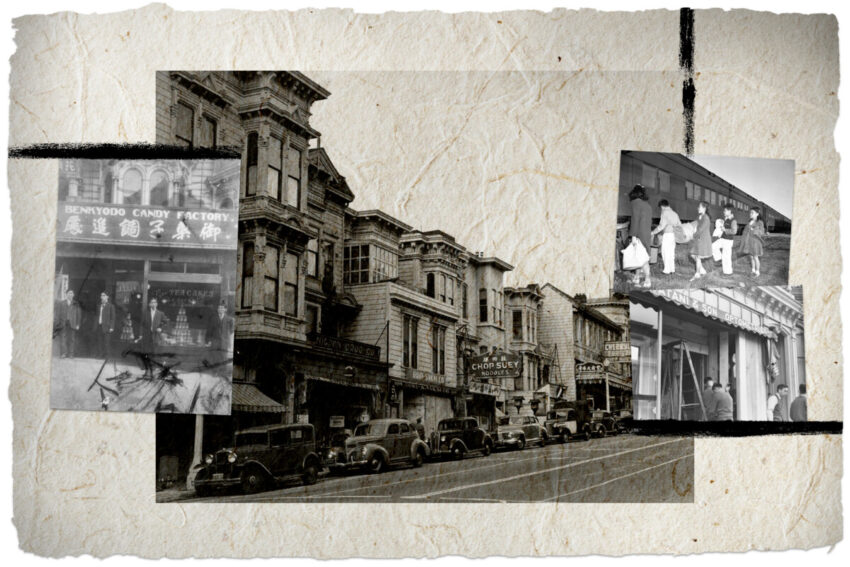
(Credit: San Francisco Chronicle)
- “On Feb. 19, 1942, in the wake of Japan’s attack on Pearl Harbor, President Franklin Delano Roosevelt issued Executive Order 9066, declaring much of the West Coast a military zone and barring people of Japanese descent from residing there.” Those words are from the Online News Association, describing a San Francisco Chronicle report that won one of its annual awards. “Within months, San Francisco’s Japantown, a bustling residential neighborhood, was largely vacant, its people sent to desolate incarceration camps. The effects of that expulsion lasted long after the camps were closed. But exactly how Japantown was reshaped by this shameful chapter has been unclear — until now.” What reporter Peter Hartlaub and Nami Sumida, data visualization editor, discovered was a legacy of profound loss: A vibrant Japanese community that made up 67% of the neighborhood’s population in the 1940s amounted to just 29% a decade later. . . .” The Chronicle won for “2024 Excellence in Visual Digital Storytelling, Medium Newsroom.”
- “
 America’s first Hmong anchorman is saying goodbye to his seat on Local 5’s ‘Good Morning Iowa.’ Chenue Her (pictured), a St. Paul, Minnesota native, is wrapping up three years in Iowa on Aug. 30,” Victoria Reyna-Rodriguez reported Tuesday, updated Wednesday, for the Des Moines Register. “At the end of the day, Her said he decided to pursue other TV news opportunities.”
America’s first Hmong anchorman is saying goodbye to his seat on Local 5’s ‘Good Morning Iowa.’ Chenue Her (pictured), a St. Paul, Minnesota native, is wrapping up three years in Iowa on Aug. 30,” Victoria Reyna-Rodriguez reported Tuesday, updated Wednesday, for the Des Moines Register. “At the end of the day, Her said he decided to pursue other TV news opportunities.”
 In April 2023, CBS News correspondent Vladimir Duthiers (pictured) attended the White House correspondents’ dinner in Washington, where he met a high-profile fan,” Stephen Battaglio wrote Tuesday for the Los Angeles Times. ” ‘I know this guy,’ was how Vice President Kamala Harris greeted Duthiers when they were introduced. ‘7:47, every day.’ . . . At a time when consumers are moving away from traditional TV news, Duthiers, who recently celebrated his 10th anniversary at the network, has become a personality that people will make an appointment to watch. He has evolved into the fourth wheel on ‘CBS Mornings,’ where he frequently fills in as co-host. . . .”
In April 2023, CBS News correspondent Vladimir Duthiers (pictured) attended the White House correspondents’ dinner in Washington, where he met a high-profile fan,” Stephen Battaglio wrote Tuesday for the Los Angeles Times. ” ‘I know this guy,’ was how Vice President Kamala Harris greeted Duthiers when they were introduced. ‘7:47, every day.’ . . . At a time when consumers are moving away from traditional TV news, Duthiers, who recently celebrated his 10th anniversary at the network, has become a personality that people will make an appointment to watch. He has evolved into the fourth wheel on ‘CBS Mornings,’ where he frequently fills in as co-host. . . .”
- Six short films by Native American filmmakers focused on climate change are expected to release online Sept. 13. The series is a collaboration with GBH’s Nova and Vision Maker Media,” Austin Fuller reported Friday for Current. “The films will be available on PBS’ and Nova’s websites, with episodes also coming out weekly on Nova’s YouTube channel. They will be promoted in Nova’s newsletter as well as on its social media channels. . . . The short films are a partner series to Nova’s three-part documentary Sea Change: The Gulf of Maine, which premiered in July and features Native American perspectives. . . .”
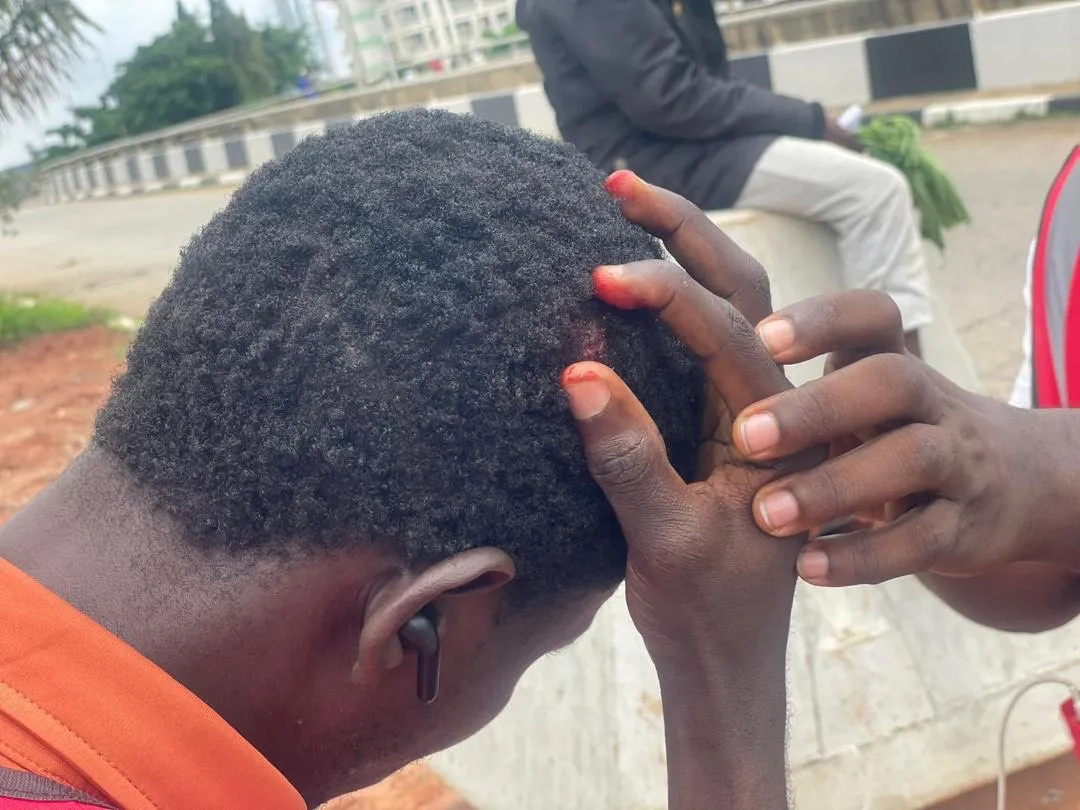 At least 56 journalists “were assaulted or harassed by security forces or unidentified citizens while covering the #EndBadGovernance demonstrations in Nigeria, one of several countries across sub-Saharan Africa that have experienced anti-government protests in recent months,” Evelyn Okakwu reported Wednesday for the Committee to Protect Journalists. “In Kenya, at least a dozen journalists have been targeted by security personnel during weeks of youth-led protests since June, with at least one reporter shot with rubber bullets and several others hit with teargas canisters. Meanwhile, Ugandan police and soldiers used force to quash similar demonstrations over corruption and high living costs, while a Ghanaian court banned planned protests. . . .” (Photo: In Nigeria, Yakubu Mohammed shows a head wound which he said was caused by police officers who hit him with gun butts and batons. Credit: Yakubu Mohammed)
At least 56 journalists “were assaulted or harassed by security forces or unidentified citizens while covering the #EndBadGovernance demonstrations in Nigeria, one of several countries across sub-Saharan Africa that have experienced anti-government protests in recent months,” Evelyn Okakwu reported Wednesday for the Committee to Protect Journalists. “In Kenya, at least a dozen journalists have been targeted by security personnel during weeks of youth-led protests since June, with at least one reporter shot with rubber bullets and several others hit with teargas canisters. Meanwhile, Ugandan police and soldiers used force to quash similar demonstrations over corruption and high living costs, while a Ghanaian court banned planned protests. . . .” (Photo: In Nigeria, Yakubu Mohammed shows a head wound which he said was caused by police officers who hit him with gun butts and batons. Credit: Yakubu Mohammed)
- “In the three years since the Taliban’s return to power on 15 August 2021, when the Islamic fundamentalist group captured Kabul, 141 journalists have been arrested or detained,” Reporters Without Borders said Aug. 14. The press-freedom group, which “collected first-hand testimonies from these media workers, condemns this atrocious repression of journalists at the hands of a regime bent on suppressing all criticism. The repression of Afghan journalists has steadily escalated over the past three years. . . .”
- “A Philippine court has ordered the country’s corporate regulator to restore the licence of Rappler, a news site co-founded by Nobel laureate Maria Ressa, a prominent critic of former President Rodrigo Duterte,” Al Jazeera reported Aug. 9. “Ressa and Rappler have been fighting multiple court cases filed during Duterte’s administration. . . .”
- In Myanmar, four people, including two journalists, were killed when Myanmar military forces raided a house on the morning of Aug. 21, according to reports, New Day Myanmar reported Friday. “The attack resulted in the deaths of freelance journalists Ko Htet Myat Thu, aged 28, and Ko Win Htut Oo, aged 26, along with a local resident and a member of a resistance group who were also at the house. The military raid was reportedly carried out after receiving a tip-off that resistance fighters were taking shelter at the home of journalist Ko Htet Myat Thu. Ko Htet Myat Thu had previously worked with The Voice of Than Phyu Zayat, and Ko Win Htut Oo was a correspondent for DVB and The Nation Voice, providing local news coverage. . . .”
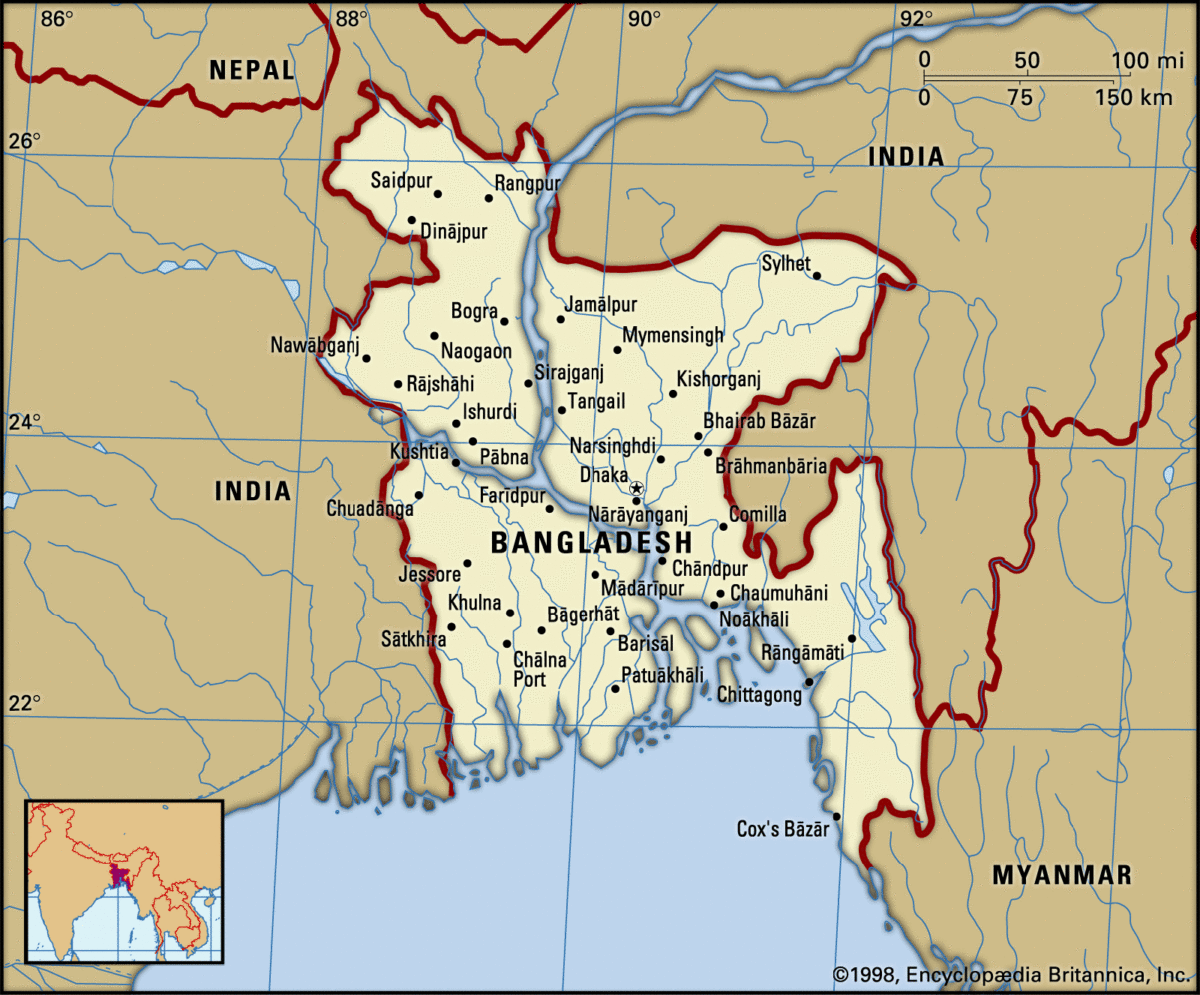 In Bangladesh, “Two journalists were arrested on the night of 20 August at Dhaka airport as they tried to flee the country, fearing reprisals for their work,” Reporters Without Borders reported. “Their names appear on a list of media professionals accused of collusion with the former government of Sheikh Hasina. . . . Journalists on the list of media personnel accused of colluding with the Hasina government are in particular danger in the current security chaos. They include editors of the independent dailies Prothom Alo and Daily Star, RSF’s correspondent,” and correspondents of such international media as the Associated Press and Deutsche Welle. Bangladesh’s Prime Minister Sheikh Hasina resigned Aug. 5 and fled the country following weeks of deadly demonstrations against her government.
In Bangladesh, “Two journalists were arrested on the night of 20 August at Dhaka airport as they tried to flee the country, fearing reprisals for their work,” Reporters Without Borders reported. “Their names appear on a list of media professionals accused of collusion with the former government of Sheikh Hasina. . . . Journalists on the list of media personnel accused of colluding with the Hasina government are in particular danger in the current security chaos. They include editors of the independent dailies Prothom Alo and Daily Star, RSF’s correspondent,” and correspondents of such international media as the Associated Press and Deutsche Welle. Bangladesh’s Prime Minister Sheikh Hasina resigned Aug. 5 and fled the country following weeks of deadly demonstrations against her government.
 In Morocco, Three journalists released from jail, thanks to royal pardons, called Aug. 10 “for Morocco to free ‘all prisoners of conscience‘ and start ‘a new phase’ for rights and liberties in the North African kingdom,” Agence France-Presse reported. “Omar Radi, Soulaimane Raissouni and Taoufik Bouachrine, historian and rights advocate Maati Monjib and hundreds more prisoners were pardoned in late July on the occasion of King Mohammed VI’s 25th anniversary on the throne. The three journalists had been held for four to six years on charges of sexual assault that they deny. Radi was also accused of espionage. They say they were punished for their opinions. . . .”
In Morocco, Three journalists released from jail, thanks to royal pardons, called Aug. 10 “for Morocco to free ‘all prisoners of conscience‘ and start ‘a new phase’ for rights and liberties in the North African kingdom,” Agence France-Presse reported. “Omar Radi, Soulaimane Raissouni and Taoufik Bouachrine, historian and rights advocate Maati Monjib and hundreds more prisoners were pardoned in late July on the occasion of King Mohammed VI’s 25th anniversary on the throne. The three journalists had been held for four to six years on charges of sexual assault that they deny. Radi was also accused of espionage. They say they were punished for their opinions. . . .”
- “Zambian journalist Thomas Allan Zgambo is facing up to seven years in prison for his reporting on corruption and poor governance in the southern African nation,” the Committee to Protect Journalists said Wednesday. “It is at least the third time that Zgambo has risked imprisonment for his online journalism, a growing threat for journalists in many African countries.”
- A Burkina Faso-based investigative newspaper is suspending publication after the kidnapping of its publishing director, the media outlet said,” Reuters reported Aug. 15. “Armed men had arrived at the home of Atiana Serge Oulon, publishing director of L’Evenement, in June and ordered him to get into a minibus, media freedom organisation Reporters Without Borders (RSF) said in a report. . . . Amnesty International and Human Rights Watch (HRW) have accused the junta of kidnapping and conscripting some of its critics, citing victims and civil society groups. . . .”
 In Guinea-Bissau, “Capital FM journalist, Djuma Culubali (pictured) and Radio Popular journalist Ngouisam Casimiro Monteiro were attacked by the Rapid Intervention Police while they reported a teachers’ protest outside the Ministry of Education on 31 July. The protesters were demanding their unpaid salaries.” The International Federation of Journalists joined its affiliate in Guinea Bissau “in condemning these acts of violence and calls on the government to refrain from its systematic pattern of brutality against journalists and media workers.” According to media reports, Culubali was arrested while she was preparing to interview teachers, who were taking part in the protest, before the event began. ‘I saw a police car speeding towards us… It was a miracle that we weren’t all run over by the car. The police got out and immediately started beating us and everything went black,’ the journalist said. Culubali was treated in a hospital in Bissau, but still suffers from severe headaches and facial paralyses. . . .”
In Guinea-Bissau, “Capital FM journalist, Djuma Culubali (pictured) and Radio Popular journalist Ngouisam Casimiro Monteiro were attacked by the Rapid Intervention Police while they reported a teachers’ protest outside the Ministry of Education on 31 July. The protesters were demanding their unpaid salaries.” The International Federation of Journalists joined its affiliate in Guinea Bissau “in condemning these acts of violence and calls on the government to refrain from its systematic pattern of brutality against journalists and media workers.” According to media reports, Culubali was arrested while she was preparing to interview teachers, who were taking part in the protest, before the event began. ‘I saw a police car speeding towards us… It was a miracle that we weren’t all run over by the car. The police got out and immediately started beating us and everything went black,’ the journalist said. Culubali was treated in a hospital in Bissau, but still suffers from severe headaches and facial paralyses. . . .”
- In Angola, the “Secretary of State for Social Communication, Nuno Caldas Albino, on Wednesday in Beijing (China), highlighted the progress made in the exercise of press freedom in Angola,” the Angola Press Agency reported. “The official welcomed the progressive increase in the number of registered media in the country, currently 47, including television, radio, newspapers and others, stressing that it has been reflected in the diversity of ideas and editorial lines. . . .”
To subscribe at no cost, please send an email to journal-isms+subscribe@groups.io and say who you are.
Facebook users: “Like” “Richard Prince’s Journal-isms” on Facebook.
Follow Richard Prince on Twitter @princeeditor
Richard Prince’s Journal-isms originates from Washington. It began in print before most of us knew what the internet was, and it would like to be referred to as a “column.” Any views expressed in the column are those of the person or organization quoted and not those of any other entity. Send tips, comments and concerns to Richard Prince at journal-isms+owner@
View previous columns (after Feb. 13, 2016).
View previous columns (before Feb. 13, 2016)
- Diversity’s Greatest Hits, 2018 (Jan. 4, 2019)
- Book Notes: Is Taking a Knee Really All That? (Dec. 20, 2018)
- Book Notes: Challenging ’45’ and Proudly Telling the Story (Dec. 18, 2018)
- Book Notes: Get Down With the Legends! (Dec. 11, 2018)
- Journalist Richard Prince w/Joe Madison (Sirius XM, April 18, 2018) (podcast)
- Richard Prince (journalist) (Wikipedia entry)
- February 2018 Podcast: Richard “Dick” Prince on the need for newsroom diversity (Gabriel Greschler, Student Press Law Center, Feb. 26, 2018)
- An advocate for diversity in the media is still pressing for representation, (Courtland Milloy, Washington Post, Nov. 28, 2017)
- Morgan Global Journalism Review: Journal-isms Journeys On (Aug. 31, 2017)
- Journal-isms’ Richard Prince Wants Your Ideas (FishbowlDC, Feb. 26, 2016)
- Richard Prince with Charlayne Hunter-Gault, “PBS NewsHour,” “What stagnant diversity means for America’s newsrooms” (Dec. 15, 2015)
- Book Notes: Journalists Follow Their Passions
- Book Notes: Journalists Who Rocked Their World
- Book Notes: Hands Up! Read This!
- Book Notes: New Cosby Bio Looks Like a Best-Seller
- Journo-diversity advocate turns attention to Ezra Klein project (Erik Wemple, Washington Post, March 5, 2014)

